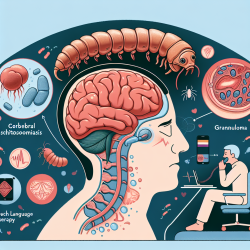As Special Education Directors, we are constantly seeking innovative and effective strategies to support our educators and enhance the learning experiences of our students. The research presented in Mental Retardation for Special Educators offers valuable insights and practical approaches that can significantly benefit our practice and professional development.
The book is a comprehensive collection of papers that address various aspects of mental retardation, providing a wealth of knowledge for educators, therapists, and other professionals working in the field of special education. By integrating the outcomes of this research into our daily practices, we can improve our skills and better meet the needs of our students.
Here are some key takeaways from the research that can help us enhance our educational strategies:
- Understanding the Individual Needs of Students: The research emphasizes the importance of understanding the unique learning characteristics and needs of each student. Tailoring our teaching methods to accommodate these needs can lead to more effective and meaningful learning experiences.
- Implementing Functional Assessments: Functional assessments are highlighted as crucial tools for identifying the strengths and weaknesses of students with mental retardation. These assessments can guide us in developing individualized education plans (IEPs) that focus on practical skills and goals.
- Emphasizing Early Intervention: Early intervention is critical for children with developmental delays. The research supports the implementation of early intervention programs that address language, cognitive, and social skills to maximize the developmental potential of these children.
- Fostering Parent and Family Involvement: Engaging parents and families in the educational process is vital. The research suggests that active family involvement can enhance the effectiveness of educational programs and support the overall development of the child.
- Utilizing Evidence-Based Practices: The book advocates for the use of evidence-based practices in special education. By relying on research-backed methods and interventions, we can ensure that our teaching strategies are both effective and efficient.
In addition to these strategies, the research also highlights the importance of continuous professional development for educators. Staying informed about the latest research, trends, and techniques in special education can empower us to provide the best possible support to our students and their families.
For those interested in diving deeper into the research and exploring more ways to enhance their professional skills, reading Mental Retardation for Special Educators is highly recommended. This book serves as an invaluable resource for anyone committed to the field of special education and the betterment of student outcomes.
To read the original research paper, please follow this link: Mental Retardation for Special Educators.










